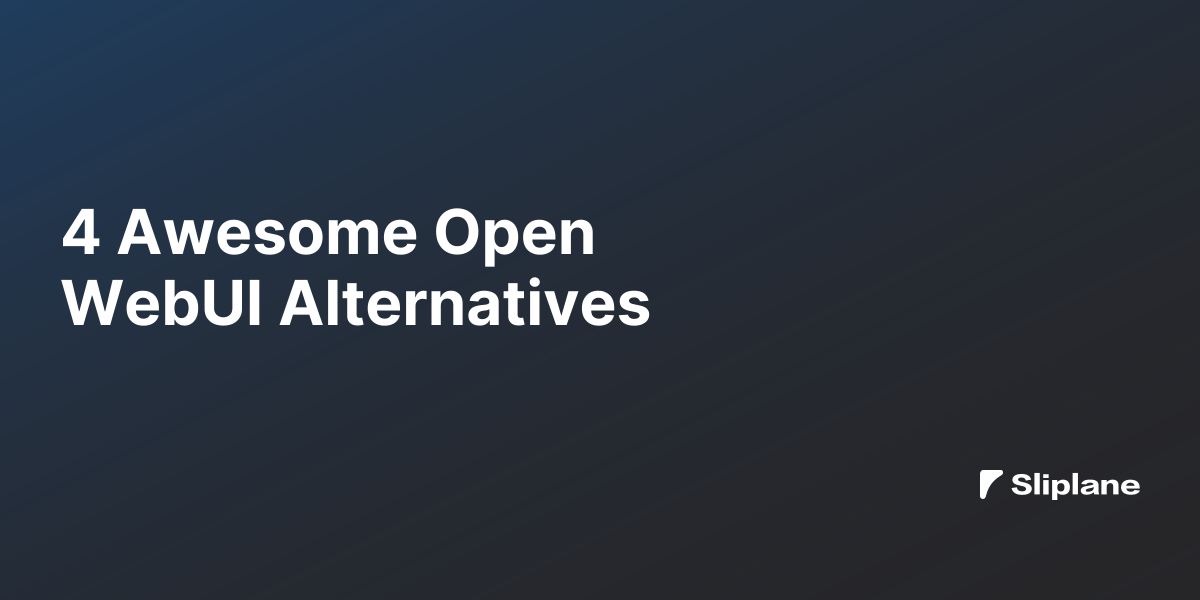
4 Awesome Open WebUI Alternatives
 Jonas Scholz
Jonas ScholzOpen WebUI is a popular self-hosted web interface for running ChatGPT-like conversations with local LLMs. It's lightweight, supports multiple models, and has a clean interface. BUT sometimes you need more - maybe better multi-user support, document chat capabilities, or just a different UI.
The good news? There are plenty of excellent alternatives that you can self-host! Whether you need enterprise-grade features, want to chat with your documents, or just prefer a different interface, we've got you covered. And yes, you can host any of these on Sliplane for just 9 euros per month - no server management needed!
Let's explore some awesome Open WebUI alternatives!

1. LibreChat
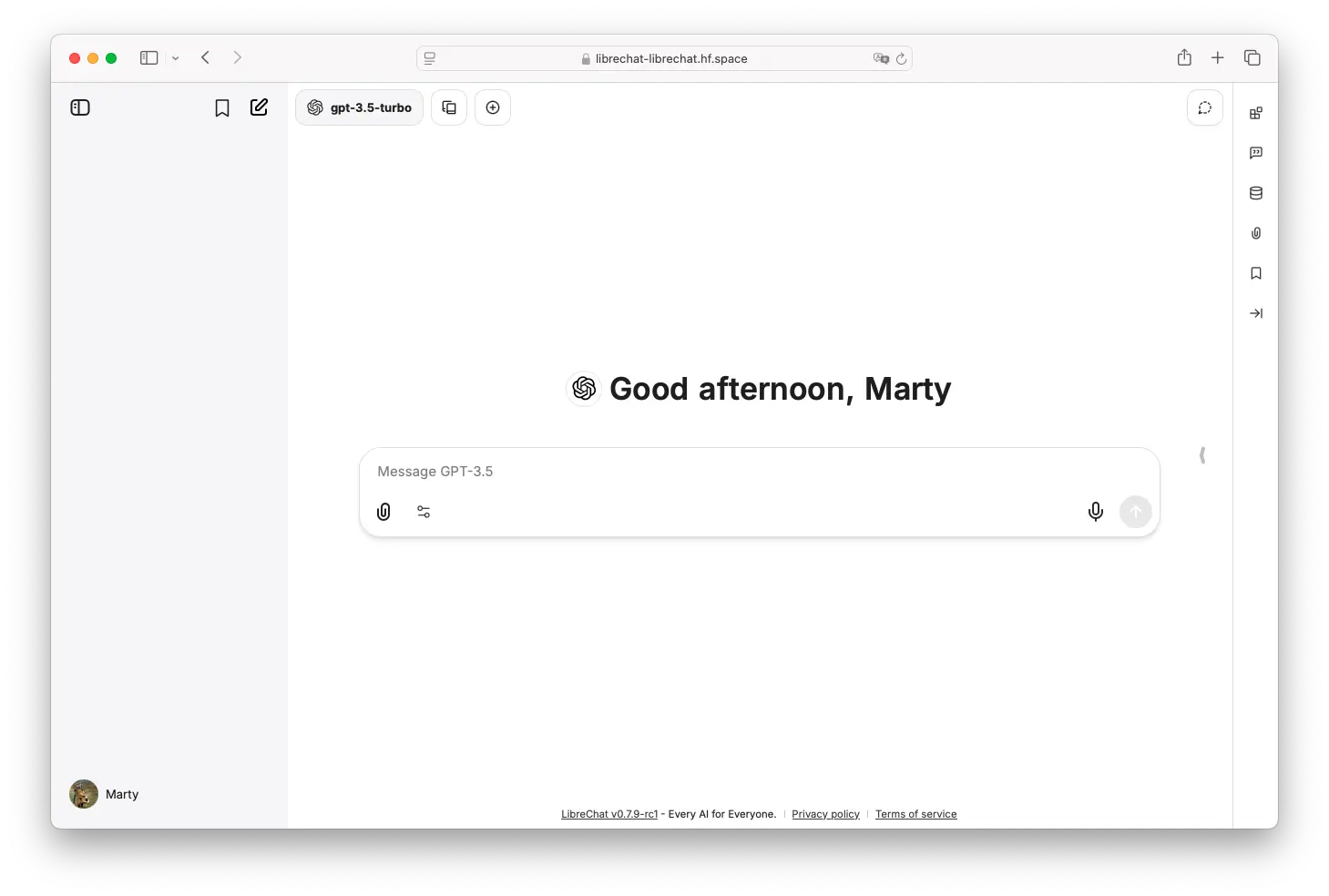
LibreChat is a polished, open-source ChatGPT-style web UI that unifies multiple AI backends under a familiar interface, with enterprise-oriented features and robust multi-user support.
- Features: Multiple model providers (OpenAI, Claude, Ollama, etc.), multi-modal support, ChatGPT plugins, function calling, RAG capabilities, conversation forking/export, and artifact rendering.
- Why You Should Use It: Offers the most ChatGPT-like experience with enterprise authentication (OAuth2, SSO), secure API key storage, and persistent chat history - perfect for teams needing a familiar UI.
- Why Not: Heavier to deploy than Open WebUI, requires external database, and lacks fine-grained role permissions (all users see same models/tools).
- Pricing: Free (open-source); self-host on your own infrastructure or use Sliplane for managed hosting.
2. AnythingLLM
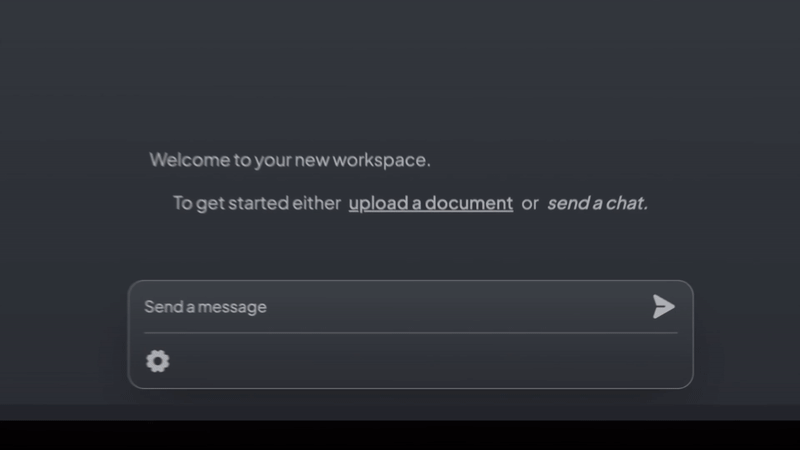
AnythingLLM is an all-in-one AI chatbot framework designed for building local AI agents that can interact with your data and tools, combining ChatGPT-style UI with document chat capabilities.
- Features: No-code agent builder, prebuilt skills (PDF reading, database queries), first-class RAG support, document ingestion (PDF, Word, CSV), multiple model backends, and observability dashboard.
- Why You Should Use It: Best-in-class for document Q&A and knowledge base chatbots, with built-in vector storage and citation support - ideal if you need to chat with your data.
- Why Not: Heavier and more complex than Open WebUI for simple chats, uses SQLite by default (limiting for large teams), and the agent system is somewhat rigid.
- Pricing: Free (open-source); available as desktop app or Docker deployment.
3. LobeChat
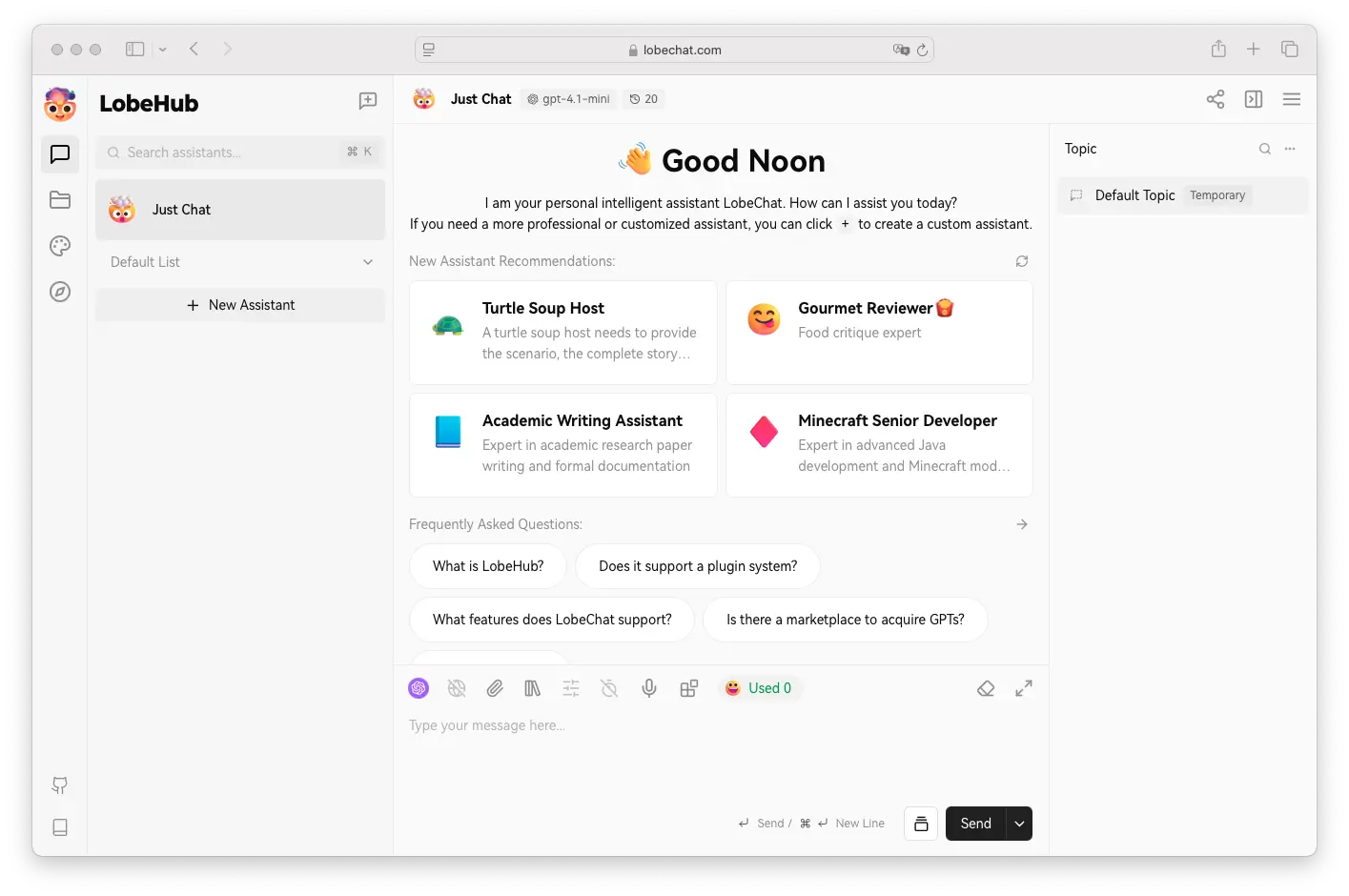
LobeChat is a modern, lightweight chat platform with a sleek UI, emphasizing extensibility, mobile support, and a plugin marketplace for AI capabilities.
- Features: Multiple AI backends, function-call plugin system, agent marketplace, knowledge base integration, voice chat (STT/TTS), image generation, PWA support, and custom themes.
- Why You Should Use It: Superior user interface with built-in voice chat, mobile app support, and extensible plugin system - perfect for teams prioritizing user experience.
- Why Not: More complex setup than Open WebUI, smaller/newer community, and lacks equivalent to Open WebUI's Python pipelines for custom backend logic.
- Pricing: Free (open-source); one-click Vercel deploy or Docker self-hosting.
5. BionicGPT
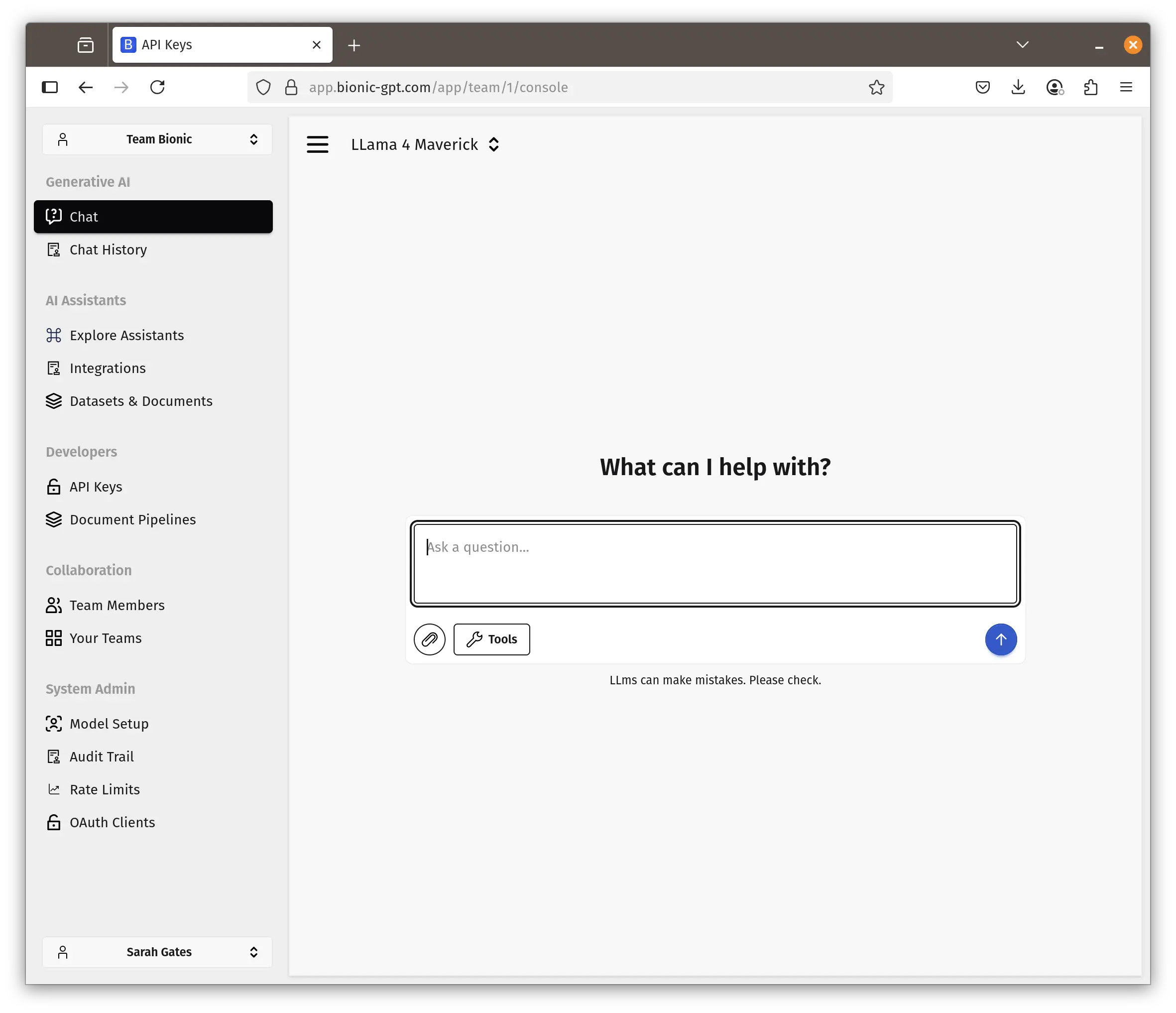
BionicGPT is an enterprise-grade, on-premises ChatGPT replacement designed for multi-user, multi-team deployments with strict data privacy and robust RBAC.
- Features: Multi-model management, team-based chat rooms, integrated RAG pipeline, usage analytics, OpenAI-compatible API, and full multi-tenant support with role-based access control.
- Why You Should Use It: Enterprise-grade features with team isolation, scalable microservices architecture, and the most robust user management system among alternatives.
- Why Not: Most complex deployment (multiple containers), resource-heavy, smaller community, and may be overkill for small teams or personal use.
- Pricing: Free (open-source, Apache-2.0); enterprise support available from maintainers.
Conclusion
| Tool | Best For | Multi-User | Deployment | Unique Strength |
|---|---|---|---|---|
| LibreChat | ChatGPT-like experience | ✅ OAuth2/SSO | Docker + DB | Most familiar UI, enterprise auth |
| AnythingLLM | Document Q&A, knowledge bases | ✅ Role-based | Docker/Desktop | Built-in RAG and agent capabilities |
| LobeChat | Modern UI, mobile users | ✅ NextAuth/Clerk | Vercel/Docker | Voice chat, plugins, best UX |
| Chatbot UI | Simple team chat | ✅ Supabase auth | Node.js + Supabase | Minimal setup, persistent storage |
| BionicGPT | Enterprise deployments | ✅ Teams + RBAC | Microservices | Multi-tenant, team isolation |
Each alternative serves different needs: LibreChat for familiarity, AnythingLLM for document chat, LobeChat for modern UX, Chatbot UI for simplicity, and BionicGPT for enterprise. All can be self-hosted to keep your data private!
Which one fits your use case best? Let me know in the comments!
Cheers,
Jonas, Co-Founder sliplane.io